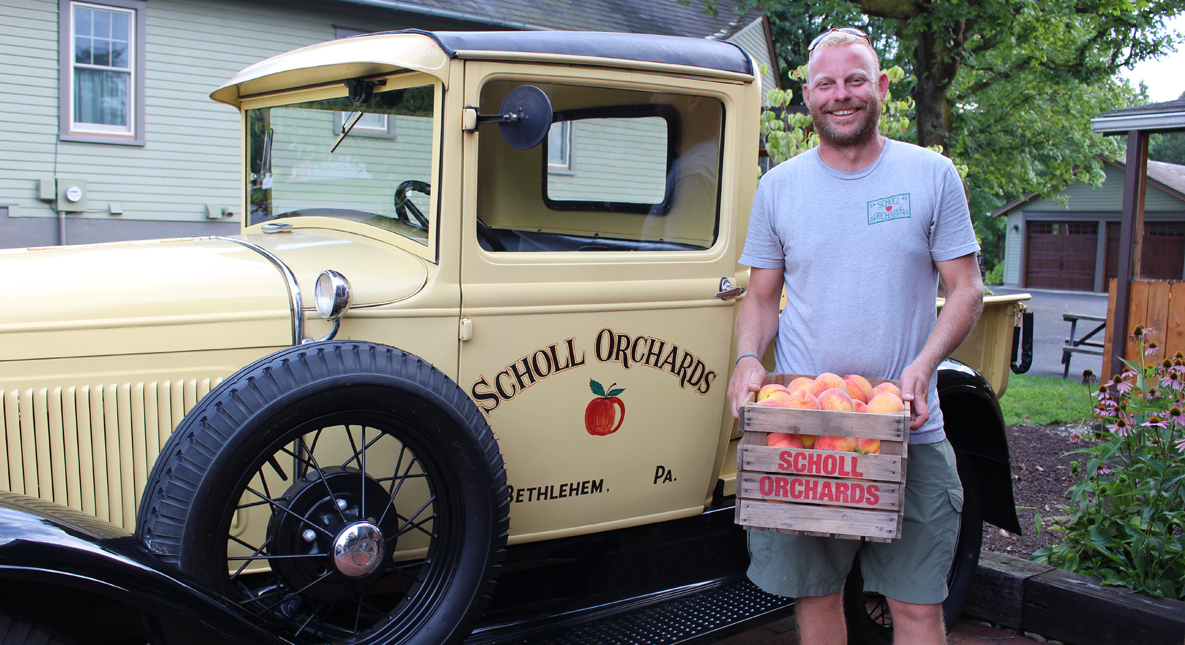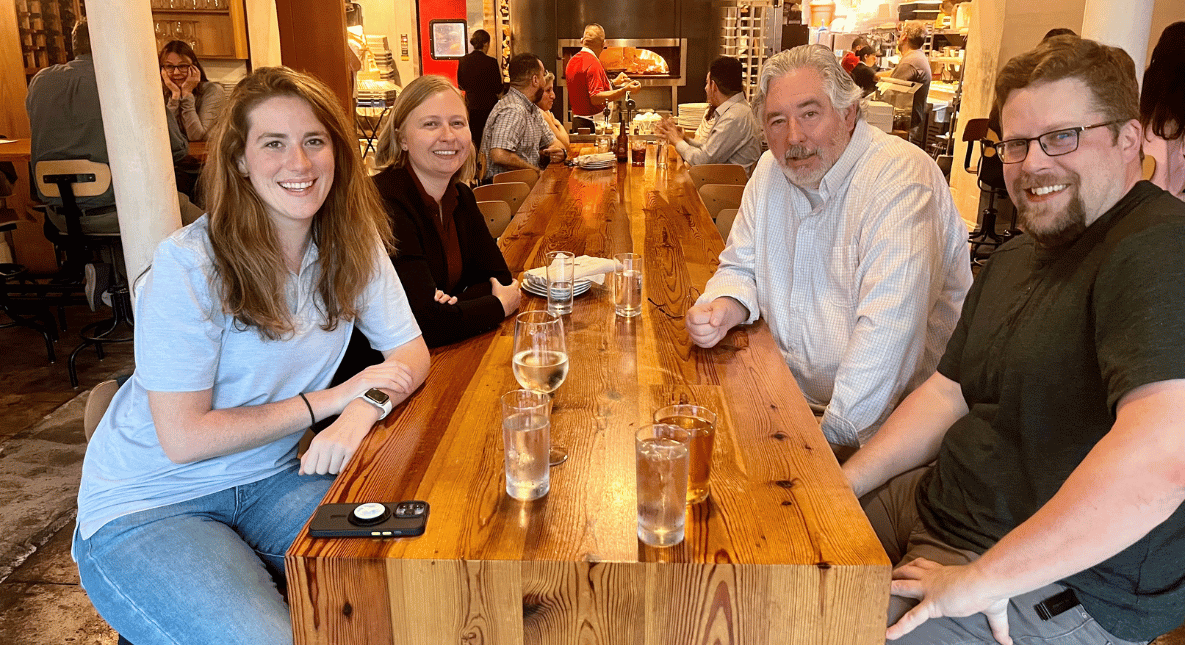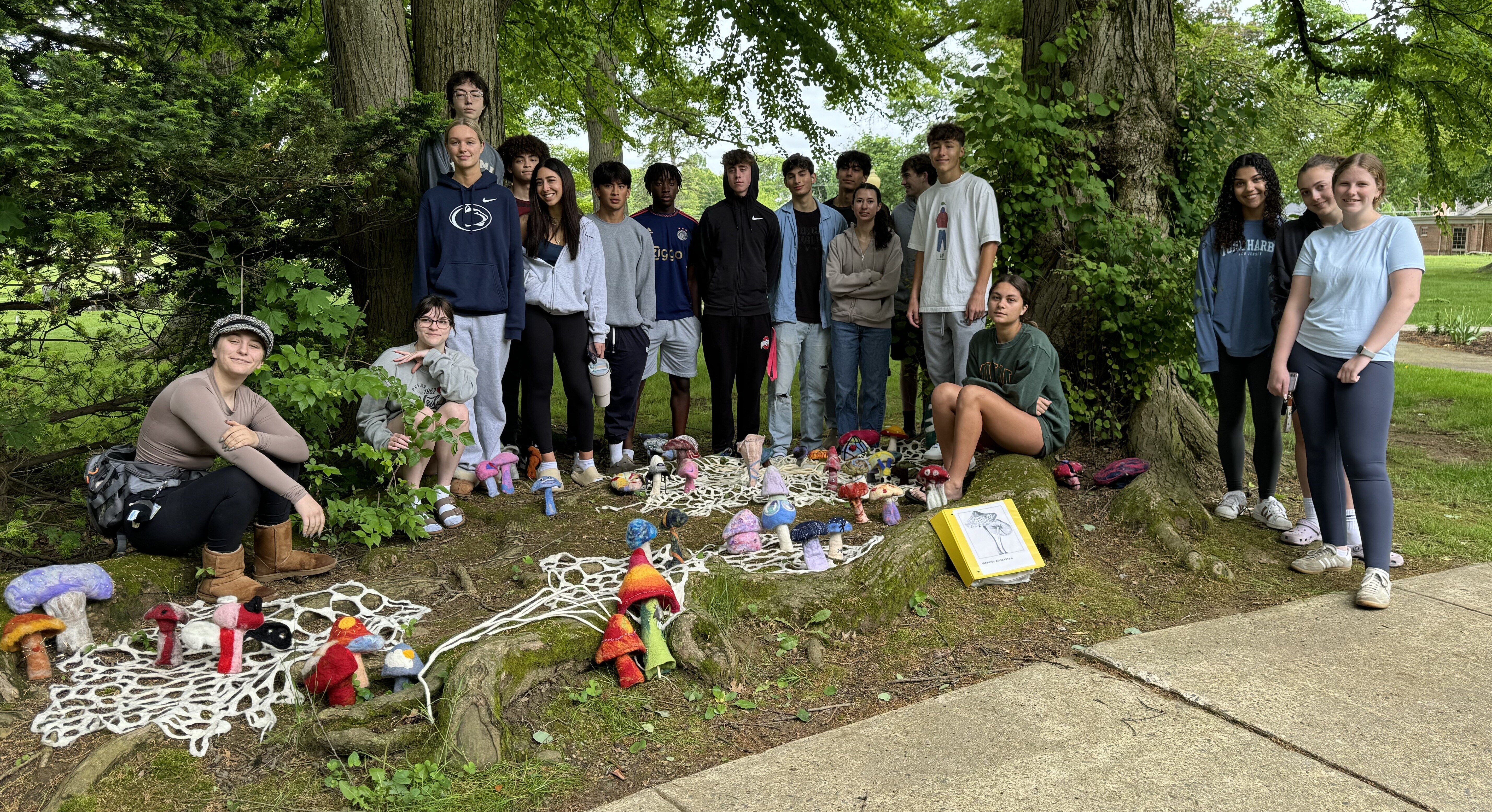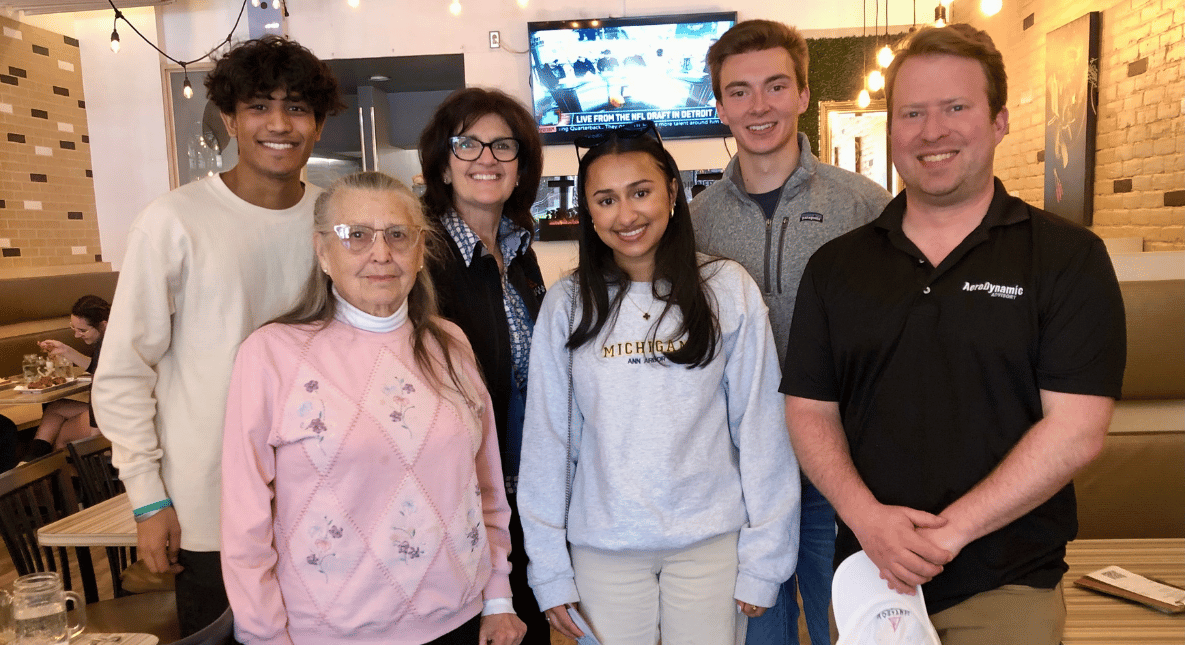From Farmstand to Restaurant Wholesaler: Perseverance Grows Scholl Family Orchard
Since 1948, people have been coming to Scholl Orchards in Bethlehem, Pennsylvania, not only for its homegrown fruits and vegetables, but the unmistakable aromas of ripe apples and peaches.
What began with a table stand of apples on the side of Center Street has been transformed by the hard work and perseverance of Ben Scholl ’98 and his family. Scholl Orchards now sells peaches, nectarines, pears, apples, plums, sour cherries, honey, cider, flowers, and vegetables at two farm markets, an on-site farm stand, and through bustling wholesale and restaurant accounts.
“My parents saw the need for fresh fruit and vegetables and were way ahead of their time in terms of the local food movement. The growth for us over the last ten years has been incredible,” said Ben, who runs the day-to-day operation of the farm with his brother Jake. “We keep planting trees because we know there’s a market for them. We have so many customers, we can barely keep up with the demand.”
A successful business owner, Ben fondly reflects back on the foundation that Moravian Academy provided him. “What I learned in four years at Moravian was mind-blowing. I basically got a college education at the high school level,” said Ben. “At Moravian, you were given a lot of freedom to do as you see fit, but I learned quickly that what you put into it, is what you got out of it.”
Ben applies this same learned philosophy to the farm. Ben and Jake work year-round - even in the winter - to assure the farm remains in good standing. “Our work never stops. My brother and I are in the fields constantly. We have a good crew of people working for us, but we don’t sit in a chair and say ‘Go pick this, go pick that,’ we actually go out there and do it. It’s long and arduous, but I love being out in the field.”
Weather can have a big effect on production so the farm has to plan accordingly. “We are always planning ahead. You always have to grow more than you need,” said Ben. “If you need 20 acres of peaches for retail, you better grow 30. We had a winter freeze and spring freeze last year. Our peach crop - which you hope will be 100% every year - was at 60% last year. Thus, we had to cut back on the wholesale end. You have to adapt. You have to change.”
The farm, best known for its peaches, added vegetables to its offerings in 2012. “One of the Mennonite farmers, who is a friend of ours, helped us plant our first garden and it was a small one. Today, it’s ten acres with pumpkins, watermelons, tomatoes, and other vegetables,” said Ben. “In a bad year like this one with barely any peaches, it’s nice to have the extra buffer to float you a little bit. It’s not peach money - but it’s money.”
The family’s work involves researching new approaches to use in the fields to improve their crops. Ben and Jake network with others in the industry to share ideas and find out what farming techniques are trending across the country and the world. The Internet has also proven to be a valuable resource. For example, after reading about a popular technique used on the West Coast, the family recently laid down a reflective plastic lining underneath their apple trees. The lining reflects sunlight up under the tree canopy onto the fruit creating brighter, more marketable apples.
“You can always do things better and you can always make improvements. Other farms are going under because they are standing still. We’re constantly looking for the next best thing and we’re finding out that change is good.”
What’s next for the farm? In a real-life definition of perseverance, Ben says, “We will be changing and adapting even more. If you want to stay in business, it has to happen. If you aren’t willing to change, you are going to get left behind in the dust.”
This article originally appeared in the 2019 Moravian Academy Fall Journal.


 myMA
myMA











